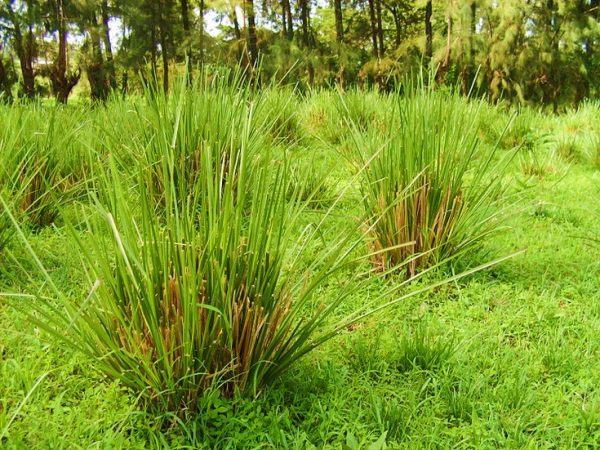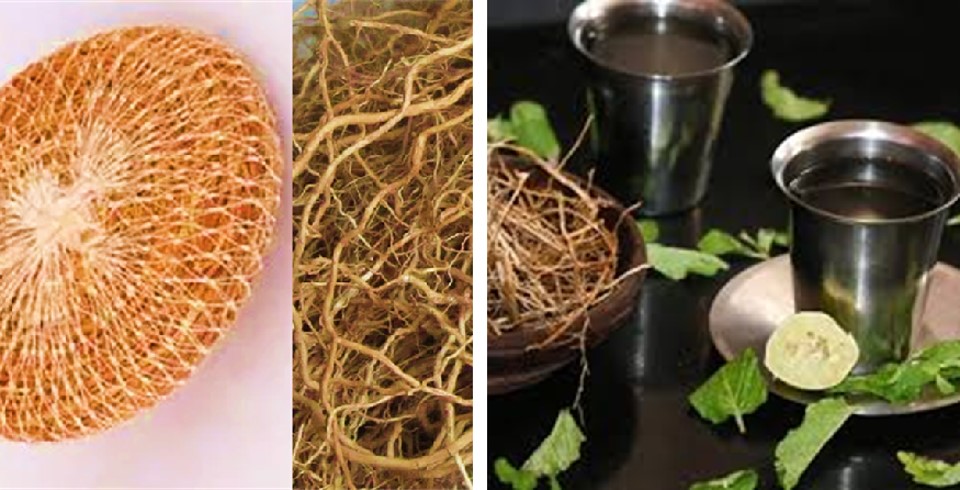
Amazing Health Benefits of Vetiver Grass Root
Khus root infused water has a cooling property and served in villages in many parts of India. If you have not tasted khus water, try it once! Khus grass is commonly known as Vetiver grass that grows in tropical countries and is extensively cultivated and used for medicinal purposes.
Vetiver is a perennial grass known for its fragrant root. Vetiver also is known by other names such as Khas Khas, cuscus grass, khus khus, Ramacchum, Lavancha, and the Botanical name is Andropgoan muricatus.
The vetiver plant looks like a lemongrass plant. In lemongrass leaves gives smell similar to lemon. In Vetiver, the highly branched root has a very specific fragrance that is soothing for the system.
Vetiver root has many health benefits.
- For nerve-related problems, roots are used as a cure.
- It has antidepressant property as well as antibacterial too.
- Vetiver therapy is used for relaxation and to bring balance to the exhausted mind and body. Steam distilled vetiver essential oil is used in therapy. Essential oil blends well with bergamot, lavender, lemon, patchouli, sandalwood, and other herbs such as black pepper, turmeric, and nutmeg.
- The essential oil of vetiver is also used in natural perfumery because of its unique aroma. It is gentle on the skin and supports skin health.
- Applying vetiver oil before bedtime helps to get better sleep.
- Do you know? Vetiver roots are used in handloom industry. Handwoven baskets, summer hand fans, bags, purses, toys etc are prepared using vetiver roots!!
Vetiver root remedies:
- For fever: Vetiver root as an ingredient in kashaya helps to control fever. Drinking boiling water with little vetiver root gives the aromatic water that controls temperature.
- For boils: Applying vetiver and sandalwood paste helps to control skin boils during summer. Prepare a paste using these two ingredients using coconut water or coconut milk and apply on skin boils.
- For better sleep: Warm coconut oil or sesame oil and add few roots of lavancha or you can also add dried lavancha powder. Store in a bottle. Use this oil to apply on the head. This not only gives better sleep but also reduces if one has a burning eye sensation.
- To reduce burning urinary sensation: To little vetiver dry root (50gram) add coriander seed (20 gram), cumin seeds (10 gram) and prepare powder. Add one teaspoon of this to boiling water to prepare kashaya. Strain, add little milk, and drink to get relief.
- Vetiver root scrub: Roots can be used as a body scrub. Bath soap containing vetiver root oil helps to reduce infections. It is an ingredient in many Ayurvedic babies bath soaps.
- Vetiver infused water: Add vetiver root, cumin, pepper, cardamom, tulsi leaves to boiling water. Boil for a couple of minutes and turn off the heat. Allow it to cool or drink it hot. It will help to relax and energizes the system!
- Vetiver water reduces vomiting sensation, relieves bad odor, relieves thirst, and removes toxins from the body. It is also a good remedy for bloating, constipation, and nerve-related pain.
- To reduce excessive thirst and sweat one can daily drink vetiver infused water! Prepare fresh vetiver infused water and drinking it helps to reduce sweat.
- Dry root powder paste can be used for treating burn wounds, treating skin disorders, and improving skin complexion.
- Vetiver essential oil mixed with a proper carrier oil can be used for external application for those who suffer from sprain, arthritis, and rheumatism.
- Fragrance of vetiver roots lasts longtime. Keeping the roots in places where pest infestation occurs, helps to reduce pests and other insects.
Who cannot use the Vetiver root?
Pregnant women and nursing mothers should not use vetiver. And people who have preexisting condition must not use vetiver without consulting a doctor.
Image credit: https://commons.wikimedia.org/wiki/File:Ethiopia_2008_vetiver_grass.jpg
Attributions: treesftf, CC BY 2.0 <https://creativecommons.org/licenses/by/2.0>, via Wikimedia Commons
Scrub image credit: Trade India, Vetiver water: Panchveda
Author: Sumana Rao | Posted on: October 26, 2020
« Home remedies for hangnails Home Remedies and Many Benefits of Herb Coriander »























Write a comment